 2019 Kirkpatrick Award Finalists
2019 Kirkpatrick Award FinalistsEvery two years, Chemical Engineering honors an innovative technology that…
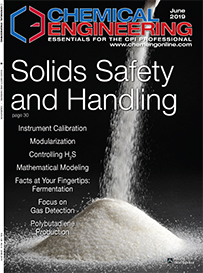
June 2019
 2019 Kirkpatrick Award Finalists
2019 Kirkpatrick Award Finalists Efficiency in Pneumatic-Conveying Air Filters
Efficiency in Pneumatic-Conveying Air Filters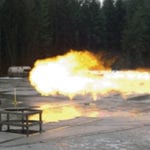 Minimizing Risk for Combustible Dust Explosions
Minimizing Risk for Combustible Dust Explosions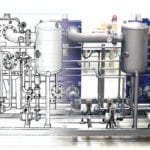 Modularization Finds New Roles
Modularization Finds New Roles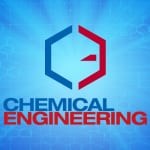 Large-scale recycling of mixed plastics
Large-scale recycling of mixed plastics A one-step route to bioplastic monomers
A one-step route to bioplastic monomers Disinfecting water with photocatalytic nanosheets
Disinfecting water with photocatalytic nanosheets Ultrafine dust has a big impact on the environment
Ultrafine dust has a big impact on the environment Isobutanol synthesis and extraction process could reduce energy compared to alternatives
Isobutanol synthesis and extraction process could reduce energy compared to alternatives These 'imprinted' resin beads selectively recover gold from leaching processes
These 'imprinted' resin beads selectively recover gold from leaching processes Chementator Briefs
Chementator Briefs Electrochemical separation and compression of hydrogen
Electrochemical separation and compression of hydrogen High-strength Al alloy for 3-D printing is moving into commercial production
High-strength Al alloy for 3-D printing is moving into commercial production Nitrogen fixation under ambient conditions
Nitrogen fixation under ambient conditions Business News
Business News Improving Mathematical Model Development and Implementation
Improving Mathematical Model Development and Implementation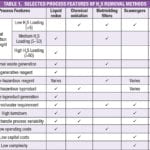 Technologies for Controlling H2S
Technologies for Controlling H2S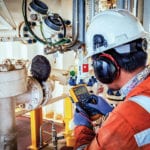 Professional Calibration Supports Operational Excellence
Professional Calibration Supports Operational Excellence Facts at Your Fingertips: Fermentation Considerations and Economics
Facts at Your Fingertips: Fermentation Considerations and Economics Technology Profile: Polybutadiene Production via a Solution Process
Technology Profile: Polybutadiene Production via a Solution Process Focus on Gas Detection
Focus on Gas Detection Pelletizers for high productivity and product quality
Pelletizers for high productivity and product quality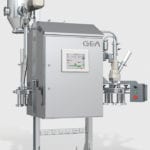 Safe, hygienic, in-line powder testing
Safe, hygienic, in-line powder testing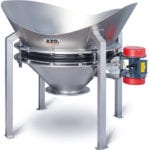 Ensure complete discharge from hoppers with this vibrator
Ensure complete discharge from hoppers with this vibrator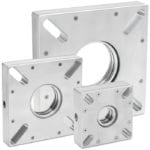 New shaft seals for screw conveyors
New shaft seals for screw conveyors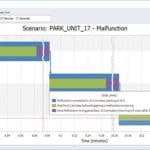 Simulation software speeds development of digital twins
Simulation software speeds development of digital twins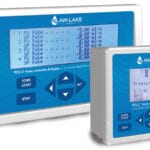 Process-control functionality for thermal mass flowmeters
Process-control functionality for thermal mass flowmeters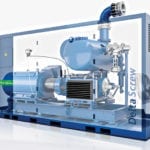 A new size added to this compressor family
A new size added to this compressor family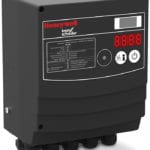 New control system for multi-burner applications
New control system for multi-burner applications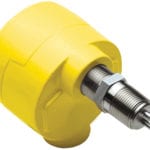 Ensure safe handling and storage of combustible liquids
Ensure safe handling and storage of combustible liquids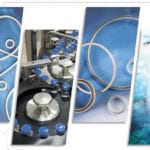 Custom sealing solutions for hygienic applications
Custom sealing solutions for hygienic applications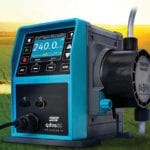 Chemical metering pumps for remote and mobile applications
Chemical metering pumps for remote and mobile applications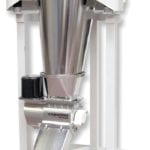 Gently feed free-flowing granular media
Gently feed free-flowing granular media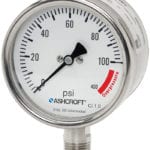 These pressure gages feature an overpressure mechanism
These pressure gages feature an overpressure mechanism This wearable camera includes thermal-imaging analysis
This wearable camera includes thermal-imaging analysis End-to-end thin client solutions from Zone 1 to the control room
End-to-end thin client solutions from Zone 1 to the control room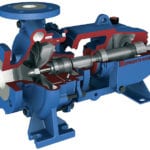 Centrifugal pumps forhandling abrasive media
Centrifugal pumps forhandling abrasive media This app puts a digital twin on your device
This app puts a digital twin on your device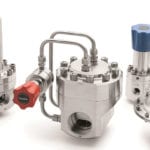 New low-temperature seals for pressure regulators
New low-temperature seals for pressure regulators Valve World Show Preview
Valve World Show PreviewBy Mary Page Bailey |
EuroChem Group AG (Zug, Switzerland; www.eurochemgroup.com) announced the formal opening of a new production plant for highly efficient, water-soluble fertilizers at its Lifosa subsidiary in Lithuania.
The €14 million ($16 million) facility will produce 25,000 metric tons per year (m.t./yr) of crystalline urea phosphate, adding to the range of high-quality fertilizers currently manufactured at Lifosa. These include Diammonium Phosphate (DAP), a nitrogen-phosphorus fertilizer, and water-soluble crystal Monoammonium Phosphate (MAP).
Crystalline urea phosphate is a soluble, chlorine-free fertilizer that contains no heavy metals and is suitable for use on various soils. As it is soluble in water it can easily be applied by a sprinkler and provides plants with the necessary nitrogen and phosphorous nutrients needed for growth.
“This new facility will further strengthen Lifosa’s position in the global fertilizer market,” said Jonas Dastikas, General Manager of AB Lifosa. “At the same time, the construction of the plant is an investment in the sustainable development of the company. We constantly aim to protect our environment by rationing the use of natural resources.”
Test production of crystalline urea phosphate began in September, and the plant will ramp up to full production by the end of the year.
This publication contains text, graphics, images, and other content (collectively "Content"), which are for informational purposes only. Certain articles contain the author's personal recommendations only.
RELIANCE ON ANY INFORMATION SUPPLIED IN THIS PUBLICATION IS SOLELY AT YOUR OWN RISK.
© 2019 Access Intelligence, LLC – All Rights Reserved.